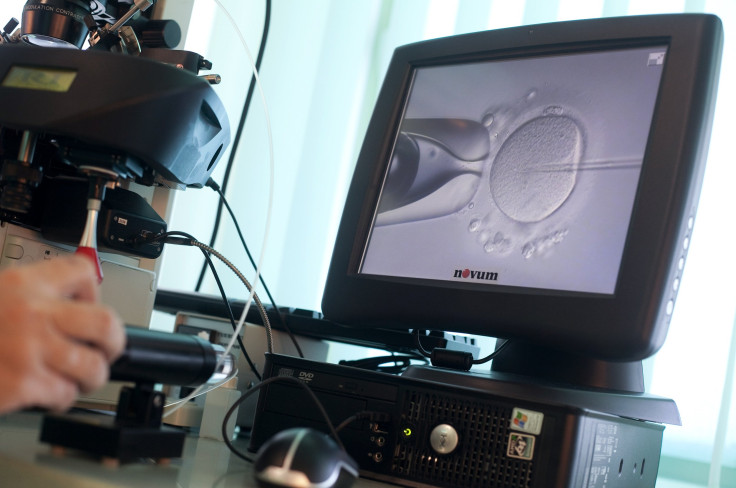‘Three-Parent’ Babies Approved In UK: How In Vitro Fertilization Technique Works

Britain on Tuesday became the first country to vote to legalize “three-parent” babies, children whose genes come from three distinct individuals – a mother, a father and a female donor. The controversial procedure involves splicing together DNA material from several parents in vitro to produce an offspring less susceptible to birth defects and disease. Under the law, U.K. clinics would be able to apply for licenses to perform the procedure by fall, according to the Guardian.
Advocates for the technology trumpet its potential to save lives and prevent some genetically inherited conditions such as heart disease and muscular dystrophy as well as certain brain disorders. "Families who know what it is like to care for a child with a devastating disease are the people best placed to decide whether mitochondrial donation is the right option," said Jeremy Farrar, director of the Wellcome Trust medical charity, according to Reuters.
Britain has toyed with the idea of legalizing three-parent babies for some time. Lawmakers approved the technique Tuesday by a vote of 280 to 48. Britain’s first babies conceived through the in vitro fertilization, or IVF, technique could be born as early as next year.
Three-parent in vitro fertilization involves using the nucleus of one egg and injecting it into the cytoplasm – the thick liquid inside cells in which all genetic material is suspended – of another egg that has had its nucleus taken out. The idea is to remove the nucleus from an egg whose mitochondria is defective and place it into a healthy egg. The hybrid egg is then fertilized with a sperm.
Mitochondria are the small, rod-shaped structures in cells that power the cells’ functions. The cells are distinct from the DNA within a cell’s nucleus and do not affect things like appearance and personality. However, mutations in mitochondrial DNA can result in a number of life-threatening conditions, including diabetes and blindness. Mitochondrial DNA is passed on to an offspring through the mother.
Not everyone approves of the technology. Some have raised concerns over the potential for such DNA manipulation to affect future generations in unknown ways. Others have called attention to the technique leading to so-called designer babies. “If we believe that, sadly, given the nature of the human condition, there are these appalling diseases, where do we stop?” Edward Leigh, a conservative British lawmaker, asked the New York Times earlier this month.
© Copyright IBTimes 2025. All rights reserved.






















